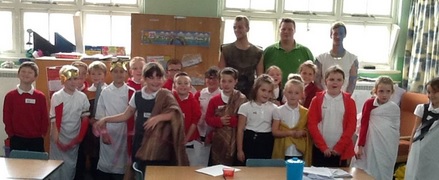
Over the last three months I have had the pleasure of teaching at a local Primary school. Though it was part of a module I have actually enjoyed the experience to the extent that myself and the other members of my group have requested to return to the school in a teaching capacity in our own time, as not only have we enjoyed ourselves whilst teaching but also developed a distinct bond with our class.
The class themselves were fantastic and nothing similar to what I expected from Key Stage 2 pupils. The maturity and inquisitive nature displayed by the class made them an utter pleasure to teach and interact with, whilst their enjoyment of each class only spurred me on to try and improve my style and ability as a teacher to further their learning and understanding of the subject.
In all honesty the part of teaching I most enjoyed was interacting with the pupils of the class while they were working and being able to answer their often insightful questions about what they were learning.
I found this particularly satisfying as it meant that what I spoke about was remembered relatively well by the class. When quizzed on it later in the lesson or the following week, it would be easily recalled by the class.
This obvious concentration that the class as a whole paid me made me feel as if my efforts were producing results and improving the learning of the class which encouraged me to spend more time on creating enjoyable, fun and diverse lesson plans for the class’ enjoyment.
I cannot pick out a single favourite class, though I have narrowed my choice down to two. Early on in our time at Glyncorrwg, in an obvious attempt to gain favour with the class, myself and my course mate Harry dressed up as a Roman and a Celt. By pretending that we had come from a time machine in the school we assumed the aliases of Titus the Roman and Wollos the Celt. Though it took a large amount of time to convince the class that I was in fact a Roman and that ‘Tom’ had gone to Roman times to fill in for me whilst I was gone, Harry had no such trouble as I had covered him from head to toe in blue body paint and as such the class had no idea who he was and assumed he was a Celtic warrior.
The arrival of these two members of rival nations created a rather funny divide in the class, between those who thought Romans were better and those who side with their blue painted teacher in disguise. This rivalry presented an opportunity for debate within the class, with one side trying to come up with reasons as to why the Romans were better and vice versa, whilst all the while Harry and I circulated gleefully stoking the fires of this ancient rivalry.
The benefit of us dressing up was that the children were thoroughly engrossed in the activities we provided them as they were desperate to prove their chosen side the winner. It also made the lesson far more interactive as it granted the class a chance to talk to ‘real’ people from the time period they were learning about and ask them questions to gain a greater understanding.
It was not only fun for the class but also for us teachers as the lesson became more interactive and less about standing at the front of the class talking.
My other favourite lesson was the first of the two in which I had control over the design. My lesson plan had some faults and flaws but the major intention of it was to be as creative as I could whilst staying within the parameters of the lesson and to grant the class the chance to learn interactively whilst having fun.
The class seemed to love the idea of being split into three teams for a game in which they compete against each other with it inspiring full concentration, even with members of the class who sometimes struggled to stay focused and on task. The fact that each team was given a student teacher as captain only seemed to make the games more competitive and enjoyable whilst also aiding in controlling the class during such a hectic set of activities. The game created a sense of controlled progressive chaos with the children eager to learn in an effort to give their team the win. I loved this lesson as I was not a team captain which meant I was roaming around making sure that the pupils were enjoying themselves whilst learning, which provided me the chance to see my game in action.
Despite the fact that I loved my experience teaching there were aspects of the classroom which I found myself struggling with at first. The most prominent of these issues was dealing with potential SEN pupils as I had no understanding or knowledge of the best ways in which to hold their attention and keep them on task. As the placement continued I found that the better I knew the children the easier it was to keep these pupils on track, this was also aided by the fact that I catered to individual learning needs more by personally providing a more diverse and inclusive lesson plan which got everyone involved in completing fun activities.
These experiences made me pleased that I took part in the module as it has provided me a very firm base upon which I have decided that teaching is the profession I wish to pursue. I am very grateful to the teacher and the Primary school for the opportunity they provided me and my group, and hopefully we can get back there next term.
Written by Tom Cox, 19 January 2015
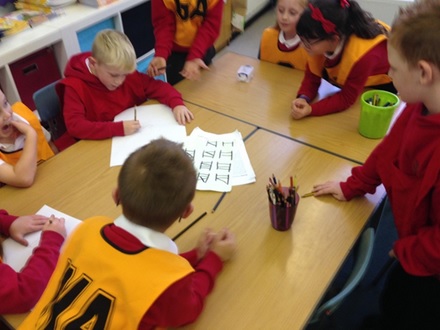
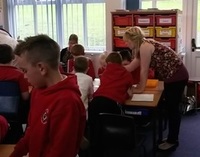
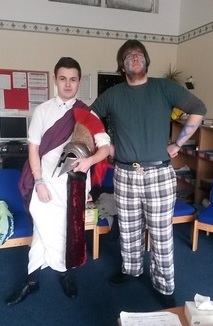
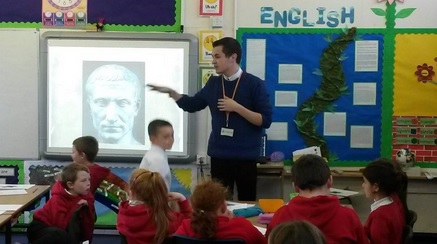
 RSS Feed
RSS Feed
